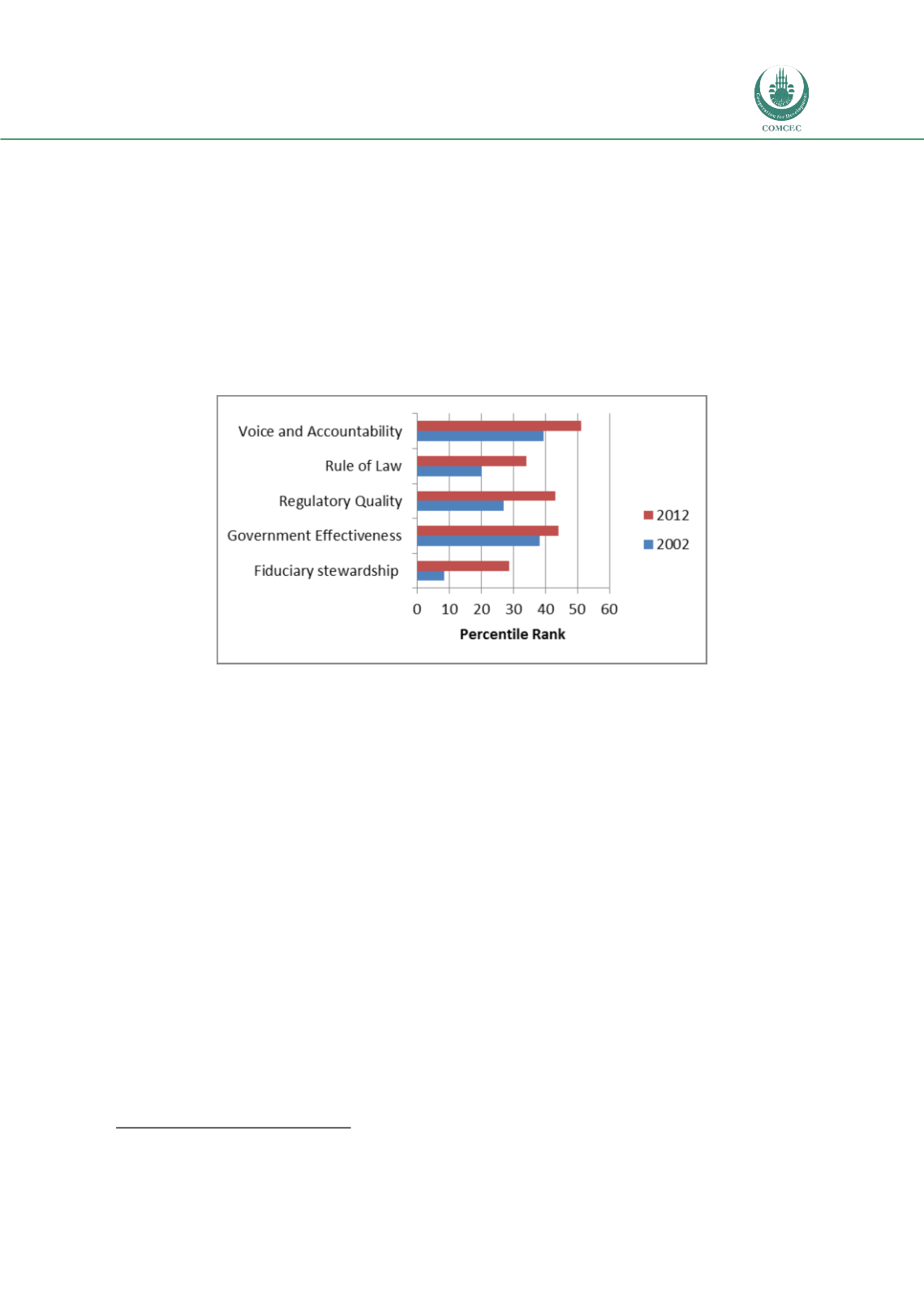

Facilitating Smallholder Farmers’ Market Access
In the OIC Member Countries
71
Governance and institutions
As discussed, the Government of Indonesia has taken a series of actions to bolster the
management of forests, lands, and other natural endowments, and this steady progress is
reflected in perceptions of governance.
Figure 42shows changes in five key governance
indicators for Indonesia between 2002 and 2012. These Worldwide Governance
Indicators are based on data reflecting local perceptions of various aspects of governance,
gathered through surveys and other assessments by survey institutes, think tanks, NGOs,
international organizations, and private firms.
The voice and accountability indictor is meant to capture perceptions about whether a
country’s citizens can participate freely in public discourse and participate in choosing
their government. The rule of law indicator reflects perceptions of whether society’s rules
are applied equally and whether property rights and individuals’ rights are protected by
courts and the police. The regulatory quality indicator has to do with perceptions that the
government can implement sound policies that promote private sector development.
Government effectiveness relates to perceptions about the government’s ability to deliver
public services and formulate and execute sound policies. Fiduciary stewardship captures
perceptions about the government’s ability to control grand and petty corruption and to
block efforts to use public position for private gain.
133
The figure shows a widespread perception that the government has made strides in all five
categories of governance, especially in efforts to limit corruption and improve the rule of
law. Still, Indonesia lags behind most of the 218 countries covered by the Worldwide
Governance Indicators, with the exception of the voice and accountability indicator.
Table 13reports on a separate set of perceptions about the strength of the institutions
Indonesia has put in place to support the business environment. The indicators are
constructed from business surveys, focusing on business regulations. Overall, Indonesia
133
Kaufmann, Kraay, and Mastruzzi (2009).
FIGURE 42: GOVERNANCE INDICATORS FOR INDONESIA, 2002 AND 2012
Source:
Worldwide Governance Indicators (World Bank 2014i).

















